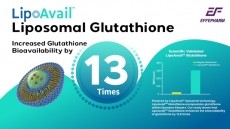Pine cone extract may reduce allergy risk
The polyphenol-lignin containing ingredient was found to reduce levels of circulating immunoglobulin E (IgE) in the blood, the predominant antibody associated with an allergic response, according to findings published in BMC Complementary and Alternative Medicine.
If additional studies, particularly in humans, support the benefits of the ingredient, it may see the pine bark extract become an important addition to the immune health market. Frank Tufaro, PhD, President and CEO of Allera, the company behind the Proligna branded ingredient used in the study, explained that several models were investigated as the study protocol was developed. “The mice are considered to be standard models of allergy and immunity, and we did not have to modify them in any way for these studies,” he said.
According to the American Academy of Allergy, Asthma & Immunology, allergic diseases affect between 40 and 50 million Americans, at a yearly cost of about $7.9 billion in health care.
Study details
The researchers, led by Guy Bradley from the Tampa Bay Research Institute, fed mice the pine cone extract. Results showed that oral delivery of the extract suppressed IgE levels in btoh naïve and sensitised mice. The extract was also associated with an enhancement in the generation of antigen specific T cells in mice challenged with DNA, dendritic cell, and soluble protein vaccines, said the researchers.
Dr Tufaro confirmed that research is ongoing with the next studies are to investigate the antibacterial properties of pinecone extract in animal models of disease, and a full clinical study of pinecone extract for allergy.
The extract has a long history of safe use by humans in the US and Japan, he added, and the company are in the process of GRAS self affirmation and expect to announce that shortly. It is available in the US, Canada, Puerto Rico, with expansion planned to China and Europe soon, he added.
Source: BMC Complementary and Alternative Medicine
9:49
“Oral administration of PPC enhances antigen-specific CD8+ T cell responses while reducing IgE levels in sensitized mice”
Authors: M. Burrows, D. Assundani, E. Celis, F. Tufaro, A. Tanaka, W.G. Bradley
Open access article available here.













